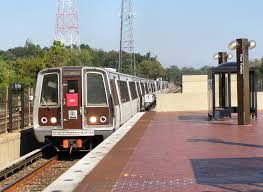
D.C.’s great train robbery
Originally published in the Washington Post
When the crackling rail-car loudspeakers come on during rush hour, they might as well say: Get your wallets out, this is a train robbery!
Despite consistent declines in Metro ridership, shoddy (and dangerous) service, cost overruns and bloated salaries and pensions, the Washington Metropolitan Area Transit Authority’s Board of Directors, led not-so-fearlessly by its chairman and D.C. Council member Jack Evans (D-Ward 2), dissolved the 13-year-old Riders’ Advisory Council in September.
Months earlier, the D.C. Council, with Evans leading the charge, hiked taxes on the poor and working class by increasing the sales tax, alcohol and tobacco excise taxes and taxes on ride-hailing services such as Uber and Lyft.
The tax proceeds will be poured into the coffers of WMATA, as it is hemorrhaging customers — especially the young, working professionals who should be the future of the system’s ridership.
On Oct. 1, the District’s general sales tax increased from 5.75 percent to 6 percent and taxes charged on beer and wine increased from 10 percent to 10.25 percent. Tobacco taxes nearly doubled.
These tax hikes will hit poor and working classes especially hard; because sales and alcohol taxes are flat taxes, they are inherently regressive.
The sales tax hike disproportionally burdens low-income families, who spend on average 75 percent of income on sales-taxable items compared with top-earning families who spend less than 20 percent of their income on such goods and services.
According to a 2017 study, using sales taxes to fund Metro repairs will hit the budgets of the District’s poorest five times harder than the well-to-do. The report concludes that “finding a fairer way to fund the Metro is a matter of both economic and racial equity.”
Because “sin taxes” are deeply regressive, they hit the poor the hardest. Although the percentage of people who purchase alcohol and the average money they spend on alcohol increases with income, the consumption constitutes a larger percentage of income for the low-income families that spend about 2.1 percent of their income on alcohol, three times the average for the high-earners. Because low-income earners smoke more than the rich, tobacco taxes are unfairly regressive as well.
Metro hopes to portray the tax hike as a necessary evil. While it’s certainly evil to punish the poor with a greater tax burden, it is far from necessary.
According to WMATA’s own figures, more than 55 percent (or $1 billion) of its revenue already comes from “jurisdictional contributions” — D.C.-area taxpayers.
Meanwhile, Metro’s operating costs have outpaced inflation while passenger-derived revenue has taken a nose-dive. Metro’s General Manager Paul J. Wiedefeld acknowledged the problem Tuesday: “How do we start to generate revenue? And obviously it’s going to be by focusing on ridership and the ridership experience.”
Obviously, the solution is to silence the ridership by shutting down its customer feedback committee while it takes your hard-earned tax money to pay for its unionized workforce’s hefty compensation packages, including $82 million in new wage hikes. Obviously.
Evans conceded last year that those hit hardest by service cuts and fare hikes are the poor, who are being taxed more. “People at the low end of the income scale are the ones who are most affected by [service cuts and fare hikes] and are most in need of public transportation,” he said.
Total Metro trips (rail and bus) have actually declined from 325 million in 2001 to 298 million last year.
It is going to get worse before it gets better — as a $3 billion unfunded pension and health-care time bomb ticks.
Drastic action is needed to put the brakes on this runaway train.
WMATA needs a hostile takeover — like the congressional imposition of the D.C. financial control board in 1995. After six years, that board, which was backed by Del. Eleanor HolmesNorton (D) and ably led by Anthony Williams, who went on to become mayor, left the District financially stable and economically competitive.
If WMATA, created by Congress but overseen by its board and the contributing jurisdictions, is worth turning around, new, bold and independent leadership is required.
We need a new sheriff or WMATA will continue to rob the less fortunate with impunity.
Sean Kennedy is a visiting fellow at the Maryland Public Policy Institute. Carol Park is a senior policy analyst at the Maryland Public Policy Institute.






